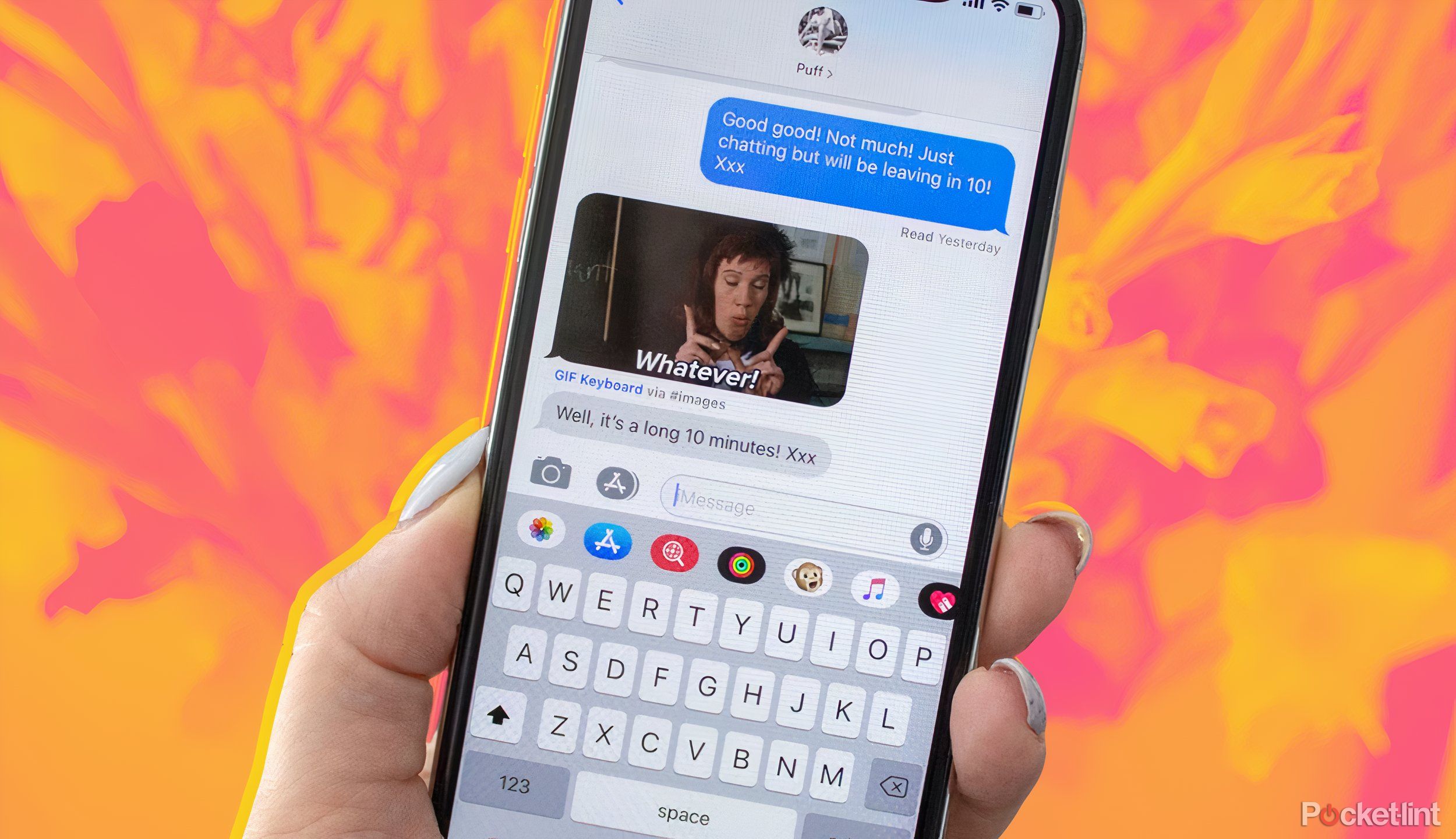Key Takeaways
- Apple will at least support Universal Profile 2.4 when it adds RCS messaging to iOS 18.
- It remains unclear if Apple will incorporate 2.4’s business messaging features, like branding and suggested replies.
- The company could eventually be forced to bring iMessage to Android.
While Apple is staying relatively cagey about its implementation of RCS (Rich Communication Services) in the iOS 18 Messages app, we now know more about which version it plans to support, thanks to Android Authority. The site points to two pieces of uncovered evidence, beginning with a comment by Tim Atkinson — the EMEA Business Development Manager at Google — who during a Mobile Ecosystem Forum Connects meeting in December 2023 said that Apple will support RCS Universal Profile 2.4, which normally includes business messaging features.
WWDC 2024: The 7 biggest announcements from Apple’s developers conference
iOS 18, iPadOS 18, watchOS 11, Vision OS 2, and more — this year’s event is packed with announcements.
That statement is backed by a GSM Association document from June 2021, explaining that new 5G-capable devices sold in China have to support Universal Profile 2.4 at a minimum. Since Apple is deeply entrenched in the Chinese market and unlikely to sacrifice billions of dollars exiting it, it effectively has no choice but to offer 2.4 or later. Some form of the Universal Profile is mandatory for RCS, as it guarantees compatibility across devices, platforms, and network operators.
It’s not clear whether Apple will actually support RCS’ business messaging features. That would allow things like branding, higher-quality media, and suggested replies, similar to the Messages for Business technology within iOS. That lets consumers use the iOS Messages app to buy products or get customer support
Why is Apple adding RCS to Messages?
Support for RCS is widely believed to be Apple’s attempt to defuse competition complaints about iMessage. The company has actively fought attempts to bring iMessage to Android, so far limiting interactions between iPhones and Android devices to the outdated SMS/MMS format. Indeed iMessage is a particular focus of the US Department of Justice’s antitrust case against Apple — exclusivity means Android users can’t even get end-to-end encryption when texting iPhone owners, at least not without a third-party messaging service like Signal.
SMS/MMS is falling by the wayside regardless. It lacks support for features like read receipts, and photos and videos sent through MMS are compressed to a much lower quality than what modern devices and networks are capable of. Support is unlikely to disappear completely though, at least not for several years — “dumb” phones aren’t capable of anything better, and many businesses and governments still depend on SMS notifications.
Trending Products

Cooler Master MasterBox Q300L Micro-ATX Tower with Magnetic Design Dust Filter, Transparent Acrylic Side Panel, Adjustable I/O & Fully Ventilated Airflow, Black (MCB-Q300L-KANN-S00)

ASUS TUF Gaming GT301 ZAKU II Edition ATX mid-Tower Compact case with Tempered Glass Side Panel, Honeycomb Front Panel, 120mm Aura Addressable RGB Fan, Headphone Hanger,360mm Radiator, Gundam Edition

ASUS TUF Gaming GT501 Mid-Tower Computer Case for up to EATX Motherboards with USB 3.0 Front Panel Cases GT501/GRY/WITH Handle

be quiet! Pure Base 500DX ATX Mid Tower PC case | ARGB | 3 Pre-Installed Pure Wings 2 Fans | Tempered Glass Window | Black | BGW37

ASUS ROG Strix Helios GX601 White Edition RGB Mid-Tower Computer Case for ATX/EATX Motherboards with tempered glass, aluminum frame, GPU braces, 420mm radiator support and Aura Sync











